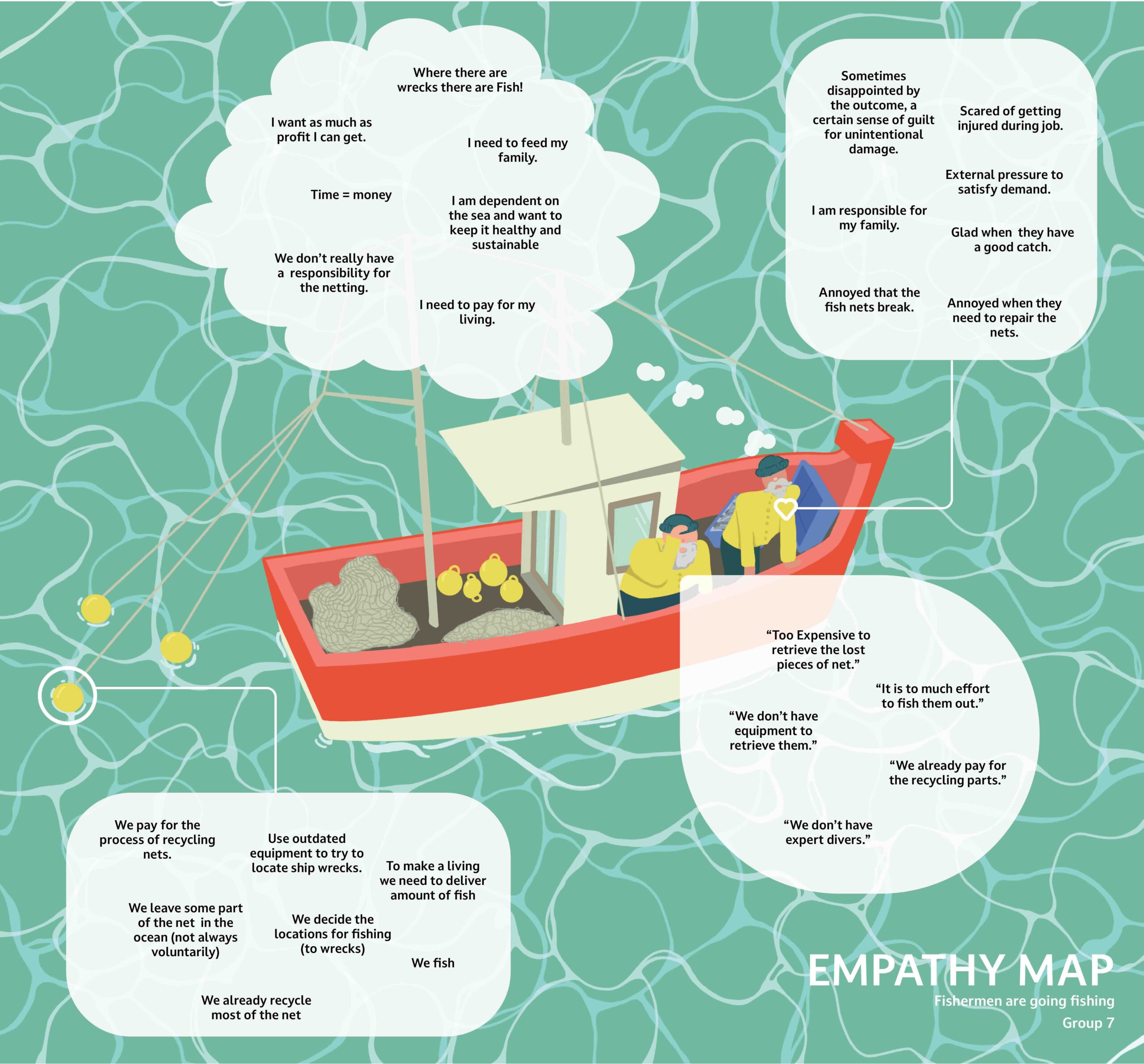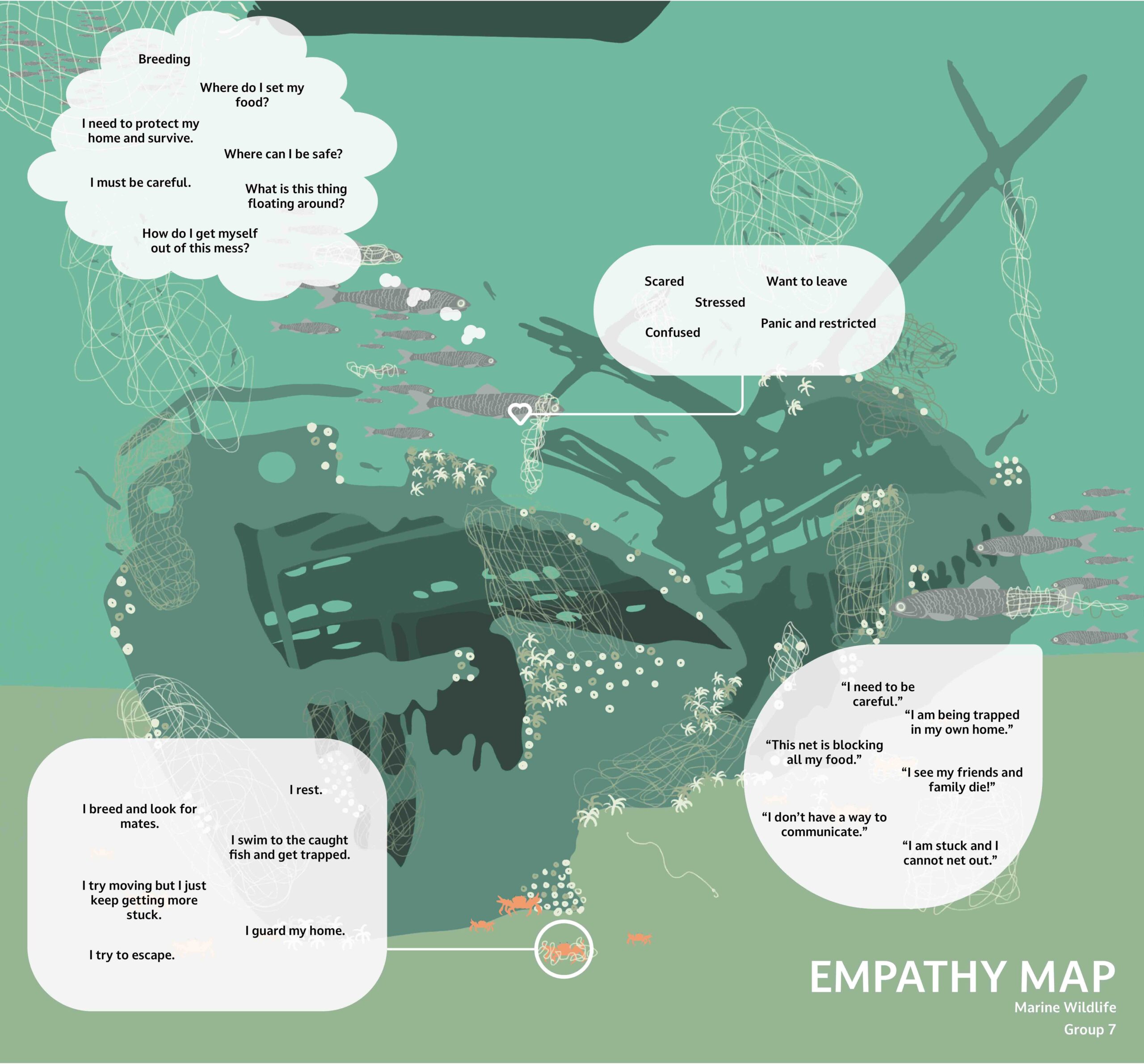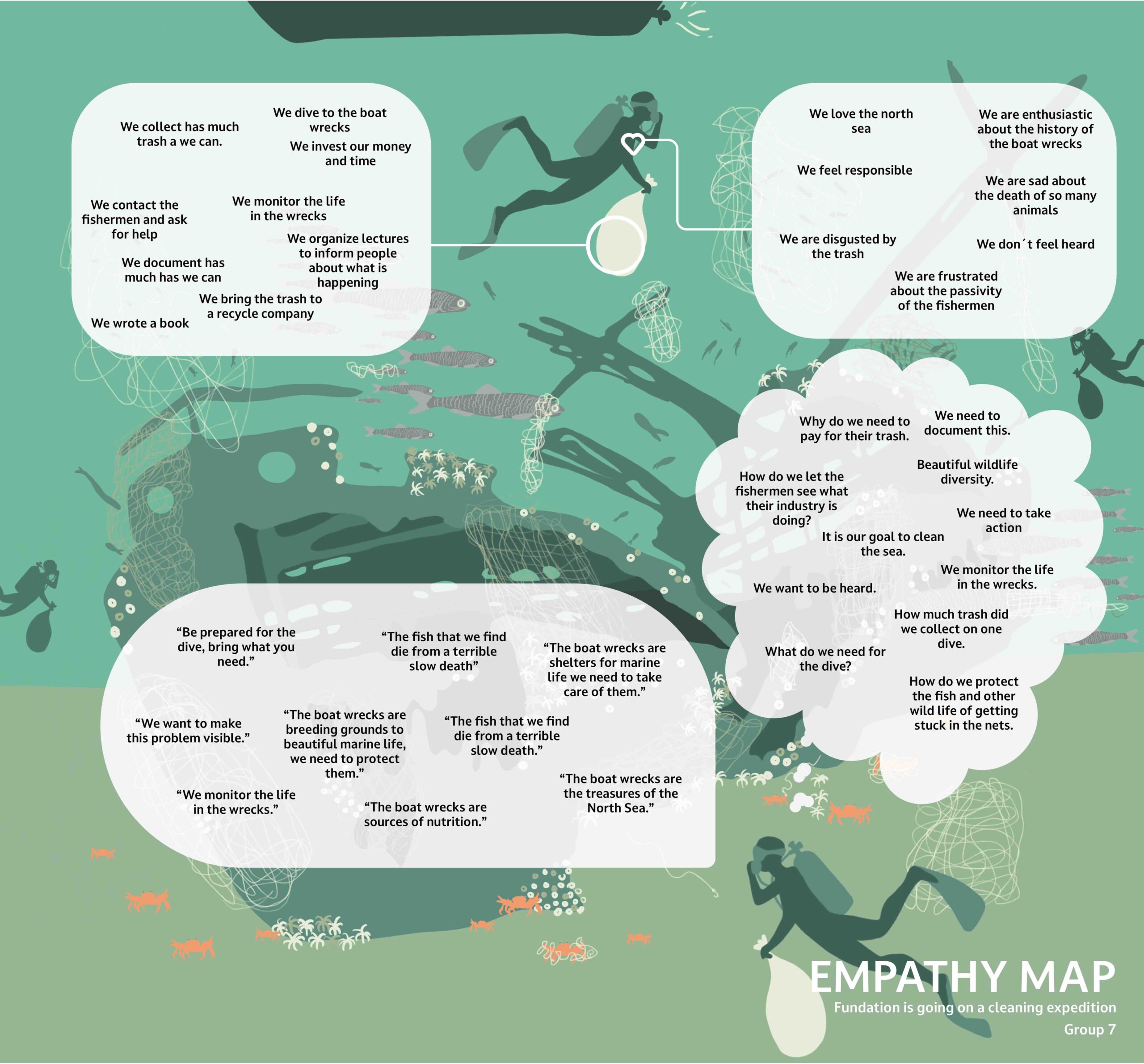Design Management
Course Pre-Master (DZB110)
Strategic Design / Entrepreneurship / Circularity / Leadership

I acquired a profound understanding of the strategic value of design within a business setting.
Year
2023
Expertise
User and Society
Business and Entrepreneurship
Creativity and Aesthetics
Institution
Technical University Eindhoven
Team
Berta Cervilla Muñoz
Tessa van Maanen
Lavender D Mello
Naomi Nohar
Giovanni Sapienza
Throughout this course, I acquired a profound understanding of the strategic value of design within a business setting. The primary objective was to identify a realistic problem that would serve as the core of our business proposition. My team and I opted to focus on the issue of ghost nets in the ocean and their detrimental effects on wildlife. To address this problem, we initiated our project with desk research, followed by the organization of semi-structured interviews. The insights gathered from this initial research were instrumental in creating empathy maps, aiding us in identifying crucial stakeholders to consider when formulating our business plan.
Building on this foundation, we initiated the development of our startup, focusing on our target audience and establishing collaborations with experts. The course contributed to enhancing my business and entrepreneurship skills, particularly in understanding value-based companies. Having a lecturer with practical experience, who openly shared insights and advice, was a valuable aspect of the learning experience.
His lessons prompted thoughtful reflections on building my own brand and determining the values I wanted to prioritize. This process also led me to consider the type of companies that align with those values, with a specific interest in workplaces that prioritize mental health and operate transparently.
A notable takeaway from the course was the practical consideration of budgeting and essential expenses. This lesson became particularly relevant as I ventured into starting my one-person company, Mossel Design. It equipped me with the necessary understanding to navigate budget considerations, determine service costs, and account for material expenditures in making informed business decisions.
The course also delved into the realm of Creativity and Aesthetics, recognizing the significance of aesthetics in the corporate world. I assumed the role of branding manager, ensuring that all our work adhered to the aesthetic chosen by the team—an aspect emphasized by the course organizers.
A critical component of the course involved self-reflection on leadership values and one’s identity as a leader. Managing a project resonated with me, sparking a desire to enhance my teamwork skills and contribute to my teammates’ growth while focusing on my own development. A key takeaway from this course in shaping my leadership style is the realization that I should not demand more from my teammates than I am willing to bear myself. However, navigating the course project and squad project revealed the nuance in this leadership style. It is vital to acknowledge the limits of teammates, recognizing that not everyone can accomplish the same tasks in the same timeframe. Therefore, another crucial lesson learned is the importance of understanding your teammates, identifying their strengths and weaknesses, and distributing the workload accordingly.
The culmination of our efforts in this course was a business case for a startup called Netjes, offering a combination of two services. We were passionate in teaching fishers about sustainable practices and introduced a circular system for the comprehensive retrieval of ghost nets from the ocean.
NETjes
Throughout the Design Management course, where I gained insights into the role of design in the business setting, my team and I developed an idea for a startup with a mission to protect the oceans from ghost nets. Following the explanation of our idea:
NETjes: Transforming the Fishing Industry for a Sustainable Future
Embark on a journey with NETjes, a startup on a mission to revolutionize the fishing industry. In this visionary project, we confront the challenges posed by ghost nets (fishing nets that are left behind or broken and that keep fishing putting ecosystems in danger), those silent threats lurking beneath the surface of our magnificent oceans. Recognizing the power and, at times, the detrimental impact of the fishing industry, NETjes has set its sights on creating a positive change.
Imagine the haunting scenes of ghost nets causing harm to our oceans, capturing fish and other marine life. NETjes stands determined to address this critical issue by developing a smart system designed to prevent and clean up ghost nets in the North Sea. Collaborating with key partners, we emphasize accountability and responsibility in our quest to safeguard marine ecosystems.
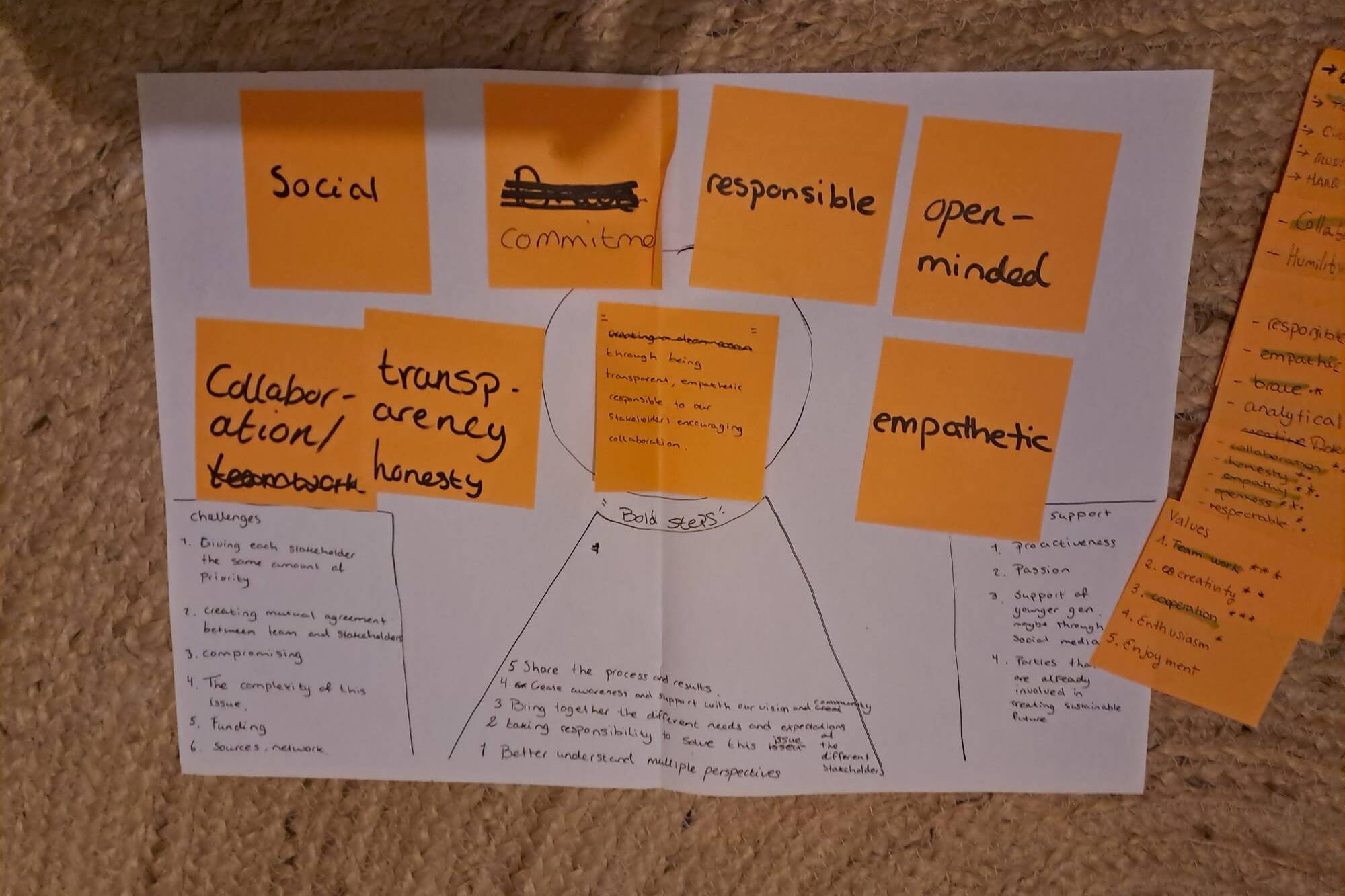
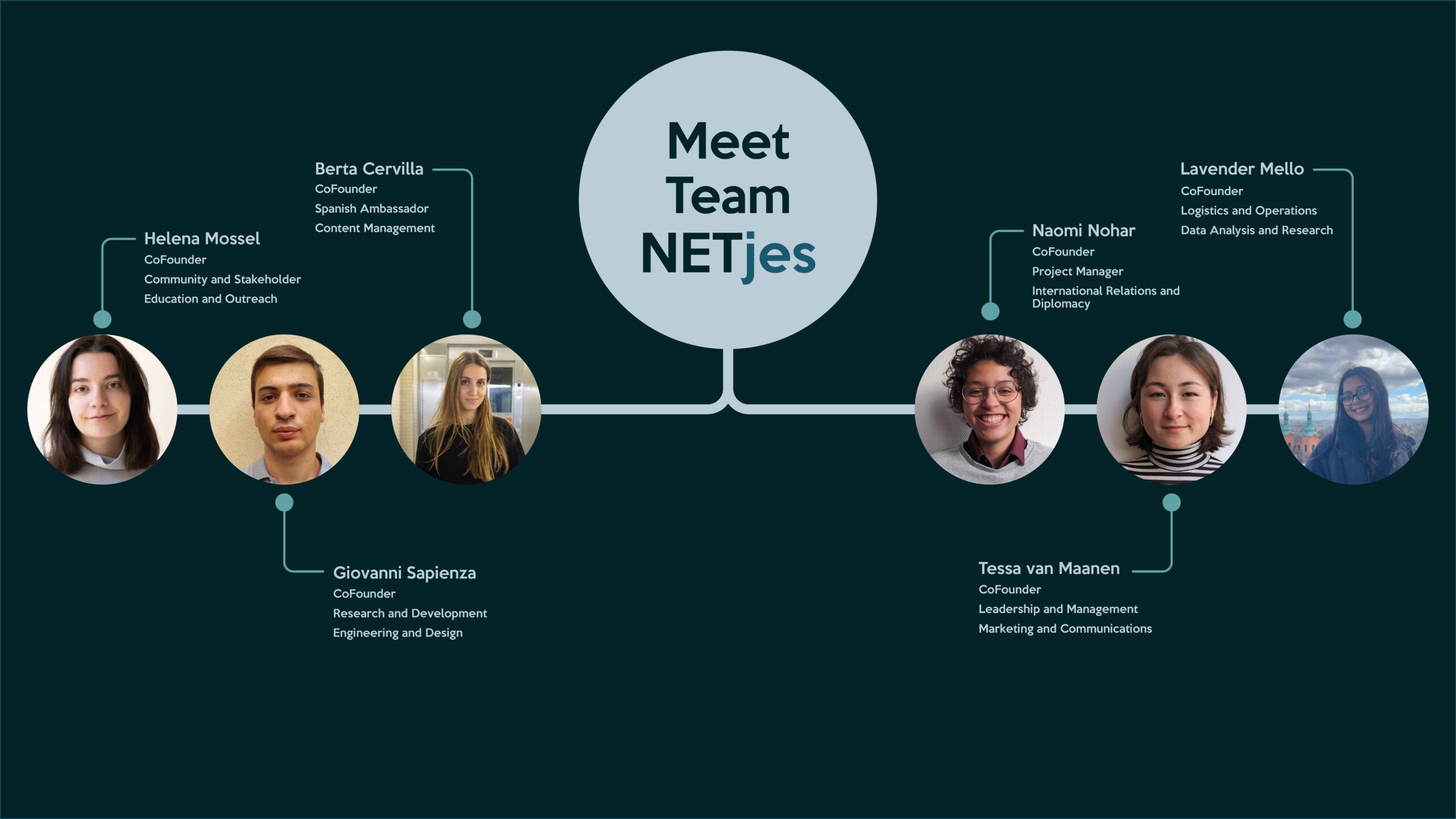
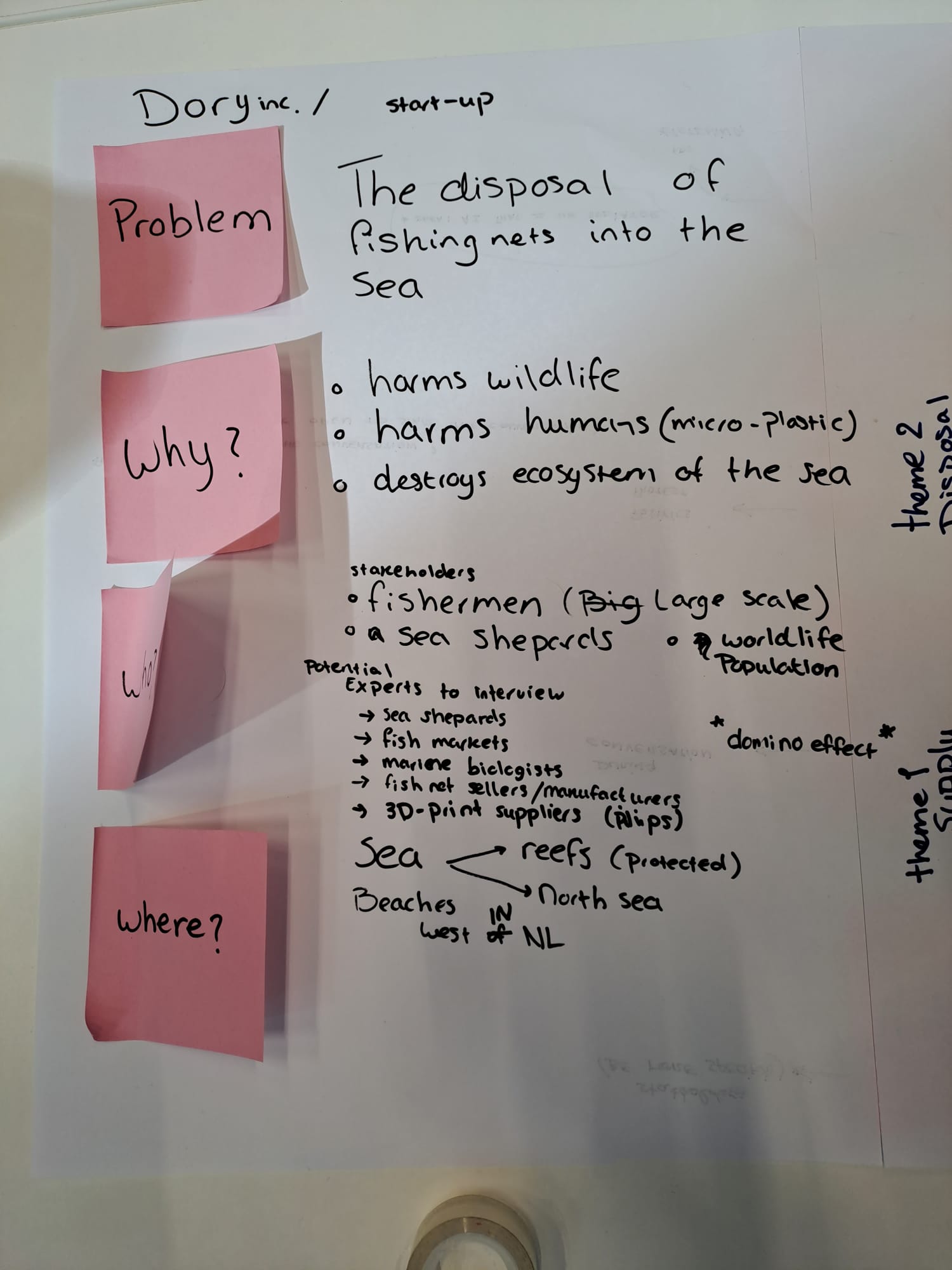
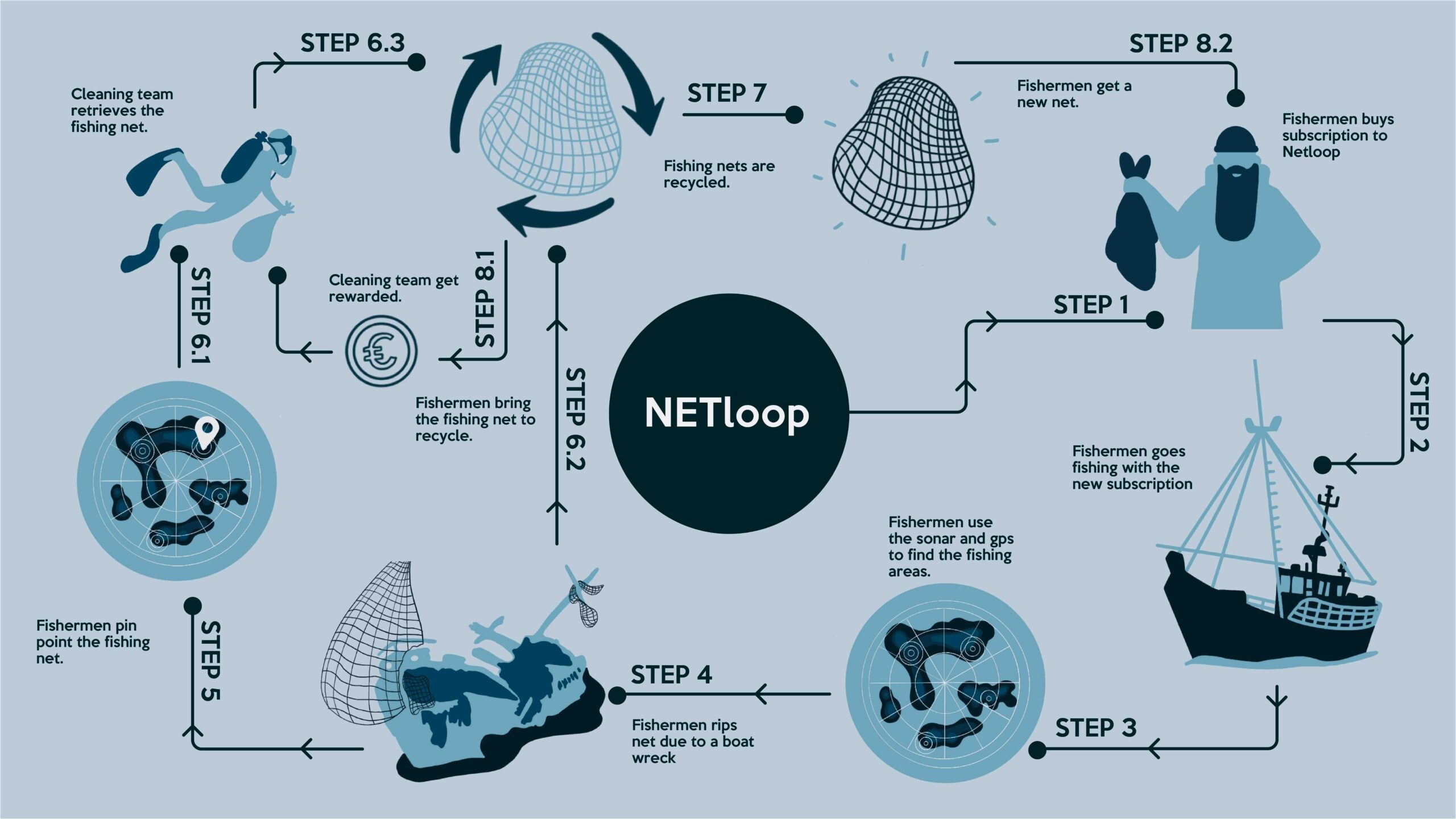
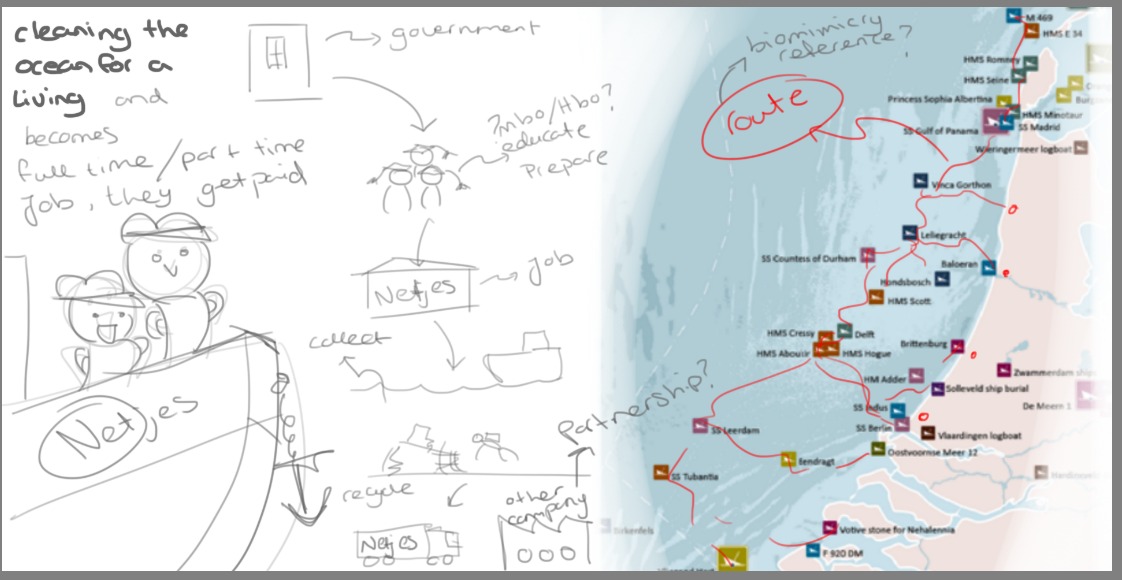
Based in the Netherlands, where the connection to the North Sea is integral, with half the country below sea level, NETjes recognizes the importance of a healthy ocean for our nation’s jobs and food supply. Our commitment extends to supporting three main groups: marine life, fishermen, and local cleanup teams.
At the heart of our innovation is NET loop, an advanced system set to revolutionize the fishing industry. Fishermen who join us gain real-time information about potential net breaks and the opportunity to recycle materials, fostering a sustainable approach to fishing practices.
To amplify our impact, NETjes is establishing a main hub in Ijmuiden, the largest fishing harbor in the Netherlands. This hub will serve as a focal point for exchanging fishing nets, teaching sustainable fishing practices, and maintaining fishing gear, further solidifying our commitment to positive change.
What sets NETjes apart is our holistic approach; we don’t just clean up abandoned fishing nets – we’re creating a circular system to prevent them. This not only aids marine conservation but also generates jobs, supports local economies, and collaborates with cleanup initiatives, positioning us as leaders in the field.
As we navigate the startup journey, our milestones include market research, network and stakeholder engagement, and product research for fishing nets. Investing our own resources initially, we aim to secure investor support in subsequent quarters, aligning our goals with their interests.
In the third and fourth quarters, NETjes plans to purchase fishing nets and materials, establish our head office/first hub, launch product sales, expand our team, and monitor product performance. With a target of securing a minimum of 100 subscriptions in the first year, each priced at 3000 euros annually for fishermen, we anticipate reaching breakeven by the third operational year.
NETjes invites you to join us on this transformative journey. With a diverse team united by passion, creativity, and technical expertise, we tackle challenges with resilience and adaptability. NETjes strives for a culture change, promoting prevention and sustainable habits to make our oceans right.
Join NETjes, where change takes flight, and together, we’ll pave the way for a sustainable and prosperous future for our oceans.


